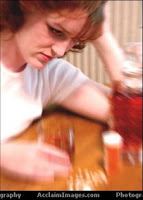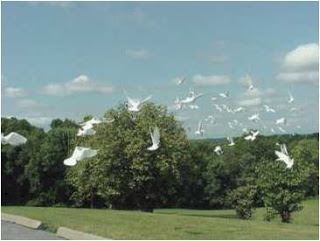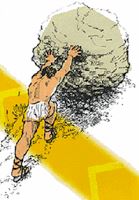Falling in love?
Saturday, July 23, 2011
This story puts in a nutshell why we doctors spend far too much time worrying about how to diagnose and treat mental health problems. Given the chance, our patients have much more interesting and useful ideas than we do, about how to find their way out of difficult circumstances and improve their lives.

Jenny comes to see me in my surgery in Liverpool one morning. She tells me she feels dreary, denigrated. She says she has no self esteem. She is thirty seven, and has realized - like Lucy Jordan - that she’ll never ride through Paris in a sports car with the warm wind in her hair. ‘By the time you’re 40’ she tells me, ‘what is inside you comes out to the surface. I look in the mirror and see an old, ugly, hard bitch’.
She can find no value in her relationship with her partner. Recently he went five days without washing himself. ‘Just attention-seeking’ she reckons, ‘but it didn’t work’. He has warned her that if she ever tries to throw him out of her home he will kill himself - and their eight year old son. Jenny doesn’t really believe him but she is not quite sure. She might risk it when her son is older - thirteen, maybe seventeen – and can look after himself.
I ask Jenny what she would do in an ideal world, if she had all the choices available to her, if she could do anything she might possibly want. ‘Not money or fame,’ she replies. She sits and thinks for a while. ‘Respect from others would be good… and being able to write’.
How would she like to get there, I wonder? We talk about antidepressants – they might be an option, maybe sertraline which she she’s tried before. Alternatively, I suggest she might like to take part in a Positive Thoughts Course, one of the group psycho-education programmes that my wife Sue runs.
Then suddenly, unexpectedly, a whole set of other possibilities emerge from our conversation.
Jenny tells me she’s been thinking about signing up for a creative writing course. She’s also been wondering about taking up meditation or yoga, and exploring Buddhism. Or she might join the anti-cuts movement (our conversation takes place in the weeks after the first Coalition budget).
‘Or maybe’ she says, ‘maybe I should fall in love’.
 0
Like
Published at 10:52 PM Comments (1)
0
Like
Published at 10:52 PM Comments (1)
Racing pigeons
Sunday, July 10, 2011

In my last post (Rolling rocks) I told you about Iain, how he can’t see any point in getting up in the morning - and asked you how you’d respond to his despair.
Thanks to Patricia for your thoughtful comments. You have a lot of empathy for Iain’s problems.There is something here about being able to look life in the face and – somehow, despite everything it throws at us– carry on. It’s as simple (or as difficult) as the active acceptance of life as it is, the recognition of the circumstances in which we find ourselves and the determination to make of them the best we can.
This brings us back to Sisyphus, forever straining to roll his rock up the hill before watching it fall all the way back down again. The French writer Albert Camus has a great take on this story. He tells us that Sisyphus is happy. Happy because knows that there is no ultimate logic or purpose in what he is doing – and this gives him a sense of liberation. ‘There is no sun without shadow, and it is essential to know the night’. His fate belongs to him. He remains its master, his mind and body fully engaged in his chosen activity: ‘The struggle itself toward the heights is enough to fill a man's heart.’
And it reminds us of Nelson Mandela and his favourite poem, Invictus: ‘My head is bloody, but unbowed... I am the master of my fate: I am the captain of my soul’.
This way of looking at life can help us to engage, fully and knowingly, with the real and specific circumstances we find ourselves in: whether that’s the daily demands of work; the never-ending responsibilities and expectations of caring for young children; a long prison sentence on Robben Island; or living with physical disability or a chronic health problem. It brings with it a sense of dignity. Even when life is tough and we appear to have run out of luck, we can hold on to the belief that we are, indeed, worth it.
Back to my conversation with Iain. We sit in companionable silence for a while. Then I ask him, ‘What do you enjoy?’
 I don’t honestly expect much of a response. But I am wrong. Coming from nowhere that I had anticipated, he leans forward and starts to tell me about his passion for racing pigeons. He owns some fine specimens, he takes real pleasure in caring for them, and in how well they race. I realise the importance they have for him, in their freedom of movement, the beauty and grace of their flight. They encourage his imagination to take flight, reaching towards new unseen possibilities. I don’t honestly expect much of a response. But I am wrong. Coming from nowhere that I had anticipated, he leans forward and starts to tell me about his passion for racing pigeons. He owns some fine specimens, he takes real pleasure in caring for them, and in how well they race. I realise the importance they have for him, in their freedom of movement, the beauty and grace of their flight. They encourage his imagination to take flight, reaching towards new unseen possibilities.
Our conversation ends at this point. The next time we meet, Iain says ‘You know doc, I can talk to you’. He still has problems with his feet, and tells me he is still drinking more than medical wisdom says he should (though his binges are less frequent and less severe). But now we have a basis for discussion, and a mutual respect which may - in time – enable us to change a few things together.
 0
Like
Published at 7:44 PM Comments (1)
0
Like
Published at 7:44 PM Comments (1)
Rolling rocks
Friday, July 1, 2011
Iain is usually charming and friendly, and has a good joke to tell about his time managing a pub. But not today.

He’s come to see me in my morning surgery, with a lot on his mind. His feet are playing up again. Then it’s ‘some funny do’s I’ve been having, you know like blackouts or something’: three or four of them in the past month
When I ask him to tell me more, he says (with a sheepish smile), ‘Well, I guess I’ve been drinking too much again’. Indeed he has. Without much prompting he tells me he’s getting through at least half a litre of vodka a day, and doing so mostly on his own at home. And he is smoking more than 50 cigarettes a day. I know Iain has other medical problems. He has diabetes mellitus, which (unsurprisingly) is not well controlled, and high blood pressure. He retired five years ago. His three children are all now grown up and living away from home.
Using my best consultation skills, I ask Iain to tell me more about his worries and concerns. He has a long list. Apart from his ‘blackouts’ and binge drinking, he reminds me about his painful feet. His teeth hurt a lot. He is sleeping badly and is often irritable. He has little interest in ordinary things, such as watching television or reading. He rarely goes out of his house, partly due to the pain of walking. And he is distressed because he can no longer be bothered to see his children.
He leans forward and says, ‘You see doc, basically the problem for me is I just can’t see any point in getting up in the morning any more’.
He talks about his loss of ability, his painful feet and the complications of his diabetes, both present and to come. He talks about his loss of purpose, how he used to be a successful pub manager and a caring father. But now he has no role, with either work or family. His life is futile, a relentless trudge through pain and disability. All he can see is a slow, inevitable path towards death.
Iain’s problems seem to me to be beyond the reach of medicine, and way beyond the relevance of any possible formal diagnosis.
Iain and I are facing a profound, existential question. What, actually, is the point in his being alive?

I find myself thinking about Sisyphus, condemned by the Gods to spend eternity rolling a huge rock up a mountain, only to see it fall down again as soon as he’s reached the top. And then about Bruce Springsteen’s exhausted night shift worker:
‘I get up in the evening and I ain't got nothing to say. I come home in the morning, I go to bed feeling the same way. I ain't nothing but tired. Man, I'm just tired and bored with myself’.
In my next post, I’ll tell you how our conversation went on. Meanwhile, I’d love to know how you’d respond to Iain. Maybe you’ve been there yourself, or maybe you know other people who just can’t see any point in it all. What would you say, or do?
Over to you, dear reader......
 0
Like
Published at 11:46 PM Comments (1)
0
Like
Published at 11:46 PM Comments (1)
Spam post or Abuse? Please let us know
|
|